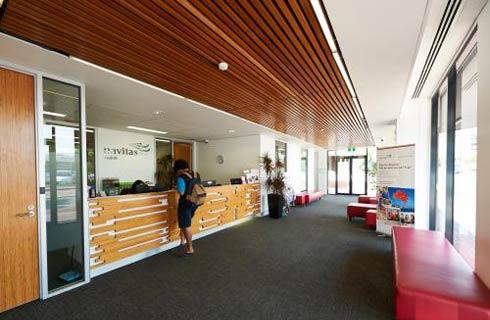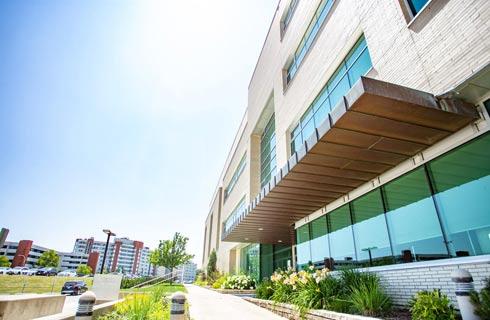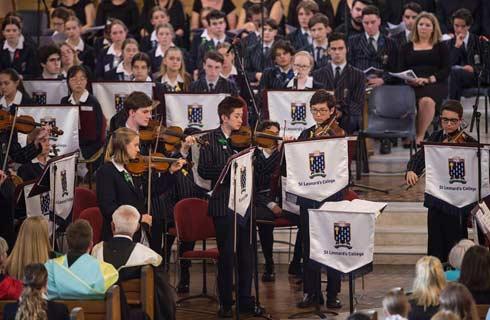电气与计算机工程哲学博士
Doctor of Philosophy in Electrical and Computer Engineering

学历文凭
Ph.D.

专业院系
Department of Electrical and Computer Engineering

开学时间

课程时长

课程学费

国际学生入学条件
Applicants must possess a M.S. in electrical or computer engineering, with a minimum 3.0 grade point average. Exceptional applicants with a master’s degree in other closely related quantitative fields such as engineering, mathematics, physics or computer science will be considered on a case by case basis, after completing a prescribed set of prerequisite courses.
Minimum English proficiency test scores:
Test of English as a Foreign Language (TOEFL): 80 iBT
International English Language Testing System (IELTS) Academic: 6.5
Pearson Test of English, Academic Module (PTE): 54
Michigan English Test (MET): 57
Application deadlines:
For fall semester: April 1; and for spring semester: October 1.
IDP—雅思考试联合主办方

雅思考试总分
6.5
- 雅思总分:6.5
- 托福网考总分:80
- 托福笔试总分:550
- 其他语言考试:Duolingo - 115.
CRICOS代码:
申请截止日期: 请与IDP联系 以获取详细信息。
课程简介
The Doctor of Philosophy in Electrical and Computer Engineering is designed to provide students advanced electrical/computer engineering education and research opportunities. The program will engage doctoral students in independent research in the field of electrical/computer engineering which will prepare them for research and development positions in the rapidly growing information and electronics sectors. <br><br>Current research areas in the department include real-time embedded systems, computer architecture and systems, biomedical engineering, signal processing, image processing, sensors and nanotechnology, biological neural networks, fuzzy logic, energy conversion, power electronics systems, communications and networking, semiconductor materials and devices, printed electronics and devices, flexible hybrid electronics, and control systems. The department has seven instructional laboratories in electric circuits, digital logic, energy conversion systems, microcomputer systems, programmable digital systems, senior design, and digital/analog electronics. In addition, there are eight labs for student and faculty research. These labs include a digital image and signal processing lab, a power equipment simulation and design lab, a computer architecture and system research lab, a neurobiology and non-linear systems engineering lab, a RF communications and RFID lab with radio frequency shield rooms, an intelligent fuzzy controllers lab, molecular and beam epitaxy lab, and a smart sensors and structures lab.
相关申请
 预科
预科 奖学金
奖学金 实习机会
实习机会 在校学习
在校学习 跨境学习
跨境学习 校园授课-线上开始
校园授课-线上开始 在线/远程学习
在线/远程学习
开学时间&学费
学费信息仅供参考,请与IDP联系以获取详细信息
| 开学时间 | 时长 | 学费 | 地点 |
|---|
关于西密歇根大学

西密歇根大学 (WMU) 位于密歇根州南部的卡拉马祖市,为本科生和研究生提供超过 250 个全面的学习项目。该校在全美公立学校排名中位列前 160名(美国新闻与世界报道,2025 年)。以职业发展为导向的学位课程助力学生直接找到有意义的职业发展。 2024年,93%的WMU学生参与了体验式学习,90%的毕业生表示很快找到了自己喜欢的工作。95%的毕业生目前从事与其学位相关的全职工作(WMU 职业成果报告,2024年)。WMU 的学位课程涵盖广泛的学科领域,并鼓励跨学科学习。各级学习阶段均可参与研究项目,不仅限于研究生。所有学习者均可获得专业、辅修和选修课程选择的指导,并得到各学科领域教师的全力支持。WMU 的学生被亲切地称为''野马队'',他们是充满活力、多元化的大学社区的一部分。学校拥有近400个学生组织,包括一级体育赛事和多个俱乐部运动项目,以及丰富的课外活动和设施,包括学生娱乐中心。学生在中型城市卡拉马祖的生活和学习受益良多,该城市被评为全美最适合大学毕业生居住的都市区第三名(Smart Asset,2023年)。WMU 地理位置优越,位于风景秀丽的五大湖区,位于芝加哥和底特律两大都市之间,距离密歇根湖不到一小时车程。
本校相关课程
其他相关课程

Master of Science in Electrical and Computer Engineering - Embedded Systems
 密歇根大学安娜堡分校
密歇根大学安娜堡分校学历文凭
Masters Degree
开学日期
课程费用总额


Doctor of Philosophy in Electrical and Computer Engineering - Control Systems (Production Systems Engineering)
 密歇根大学安娜堡分校
密歇根大学安娜堡分校学历文凭
Ph.D.
开学日期
课程费用总额


Master of Science in Electrical Engineering
 韦恩州立大学
韦恩州立大学泰晤士高等教育世界大学排名:603
学历文凭
Masters Degree
开学日期
课程费用总额


电气工程学硕士
 德克萨斯农工大学学院站分校
德克萨斯农工大学学院站分校学历文凭
Masters Degree
开学日期
课程费用总额


电气与计算机工程哲学博士-模式分析与机器智能
 滑铁卢大学
滑铁卢大学学历文凭
Ph.D.
开学日期
课程费用总额


电气工程理学硕士
 北佛罗里达大学
北佛罗里达大学学历文凭
Masters Degree
开学日期
课程费用总额
















